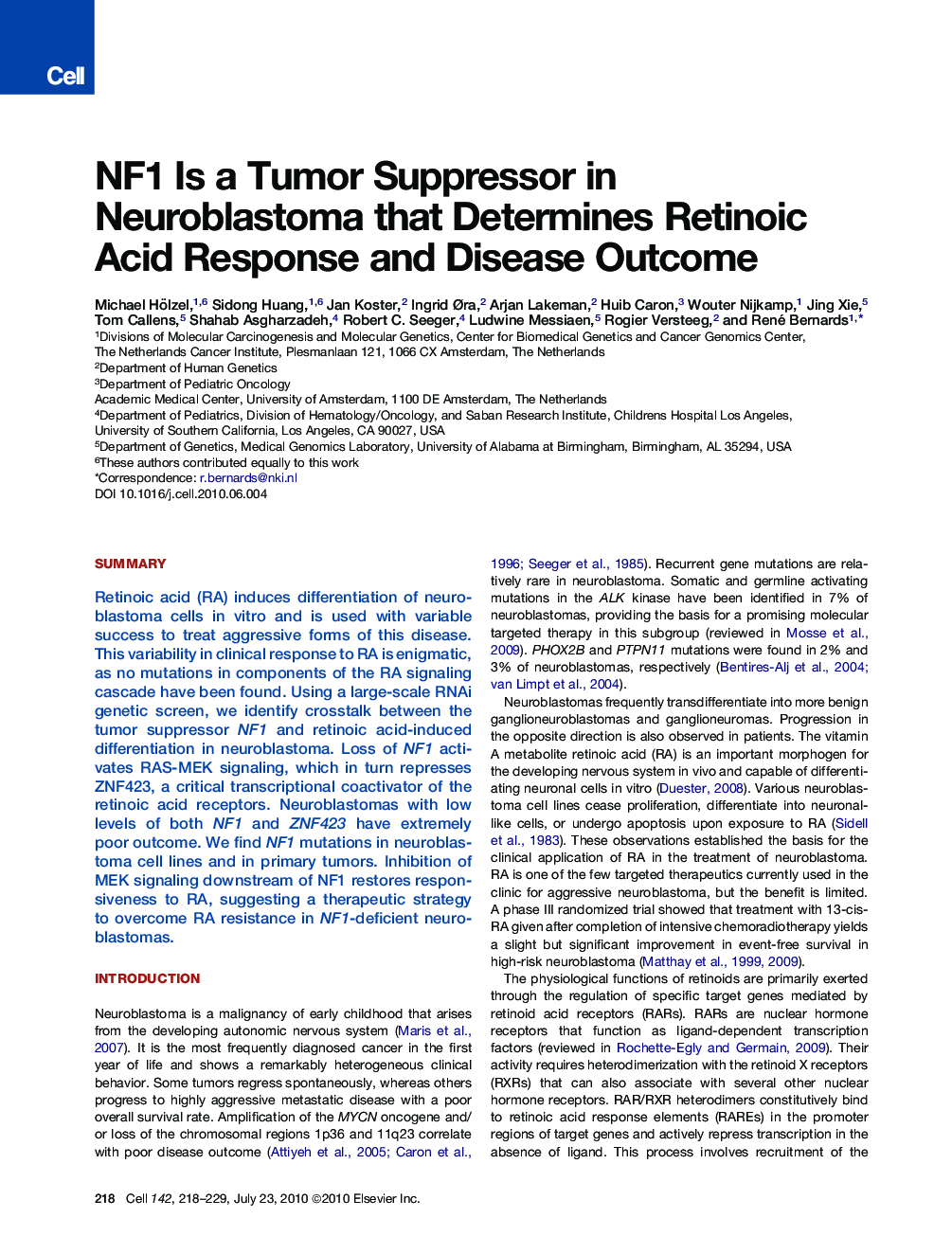| Article ID | Journal | Published Year | Pages | File Type |
|---|---|---|---|---|
| 2036255 | Cell | 2010 | 12 Pages |
SummaryRetinoic acid (RA) induces differentiation of neuroblastoma cells in vitro and is used with variable success to treat aggressive forms of this disease. This variability in clinical response to RA is enigmatic, as no mutations in components of the RA signaling cascade have been found. Using a large-scale RNAi genetic screen, we identify crosstalk between the tumor suppressor NF1 and retinoic acid-induced differentiation in neuroblastoma. Loss of NF1 activates RAS-MEK signaling, which in turn represses ZNF423, a critical transcriptional coactivator of the retinoic acid receptors. Neuroblastomas with low levels of both NF1 and ZNF423 have extremely poor outcome. We find NF1 mutations in neuroblastoma cell lines and in primary tumors. Inhibition of MEK signaling downstream of NF1 restores responsiveness to RA, suggesting a therapeutic strategy to overcome RA resistance in NF1-deficient neuroblastomas.PaperClip To listen to this audio, enable JavaScript on your browser. However, you can download and play the audio by clicking on the icon belowHelp with MP3 filesOptionsDownload audio (2709 K)
Graphical AbstractFigure optionsDownload full-size imageDownload high-quality image (110 K)Download as PowerPoint slideHighlights▸ Loss of NF1 blocks retinoic acid (RA) induced differentiation in neuroblastoma ▸ Loss of NF1 represses the RA receptor coactivator ZNF423 through RAS-MEK signaling ▸ Mutations and low expression of NF1 occur in primary neuroblastomas ▸ MEK inhibitors restore the RA response in NF1-deficient neuroblastomas
